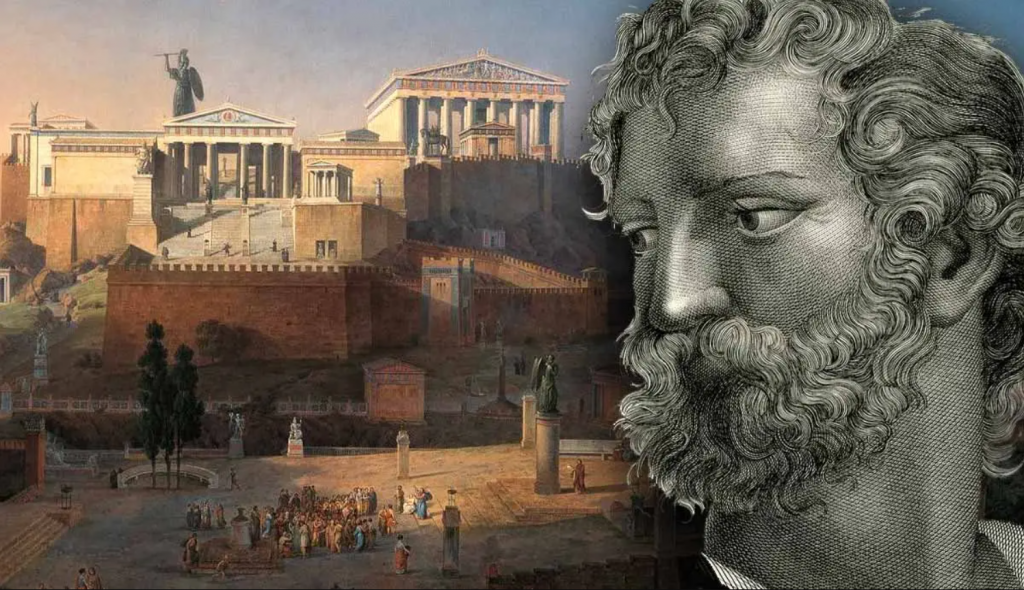
What were the views of Greek Philosophers on democracy? What are your own views on democracy in the modern world?
Greek philosophers had a significant impact on the development of democracy in ancient Greece. Many of them had different views on democracy, and their ideas influenced the political and social systems of the time.
One of the most famous Greek philosophers, Plato, was skeptical about democracy. He believed that democracy was a flawed system because it was based on the rule of the majority, which could lead to the tyranny of the majority over the minority. Plato argued that democracy was prone to corruption and that it could lead to chaos and instability (Ivanovski, 2021).
Similarly, Aristotle was also critical of democracy. He believed that democracy was a form of mob rule and that it was susceptible to the influence of demagogues who could manipulate the masses for their own interests. Aristotle argued that democracy was not a natural form of government and that it was inferior to other forms of government, such as aristocracy or monarchy (Ivanovski, 2021)
On the other hand, other Greek philosophers, such as Herodotus and Thucydides, had a more positive view of democracy. They believed that democracy was a form of government that allowed for greater participation and representation of the people. Herodotus argued that democracy was a more just and fair system because it allowed for the voices of the people to be heard (Rhodes, 2018).
Furthermore, the philosopher Democritus believed that democracy was the best form of government because it allowed for the freedom and equality of all citizens. He argued that democracy was a system that encouraged individual responsibility and participation in the political process (Michaelides et al., 2005).
To sum up, Greek philosophers had varying views on democracy. While some believed that it was a flawed system, others believed that it was a more just and fair form of government. Their ideas on democracy have influenced political and social systems throughout history and continue to shape our understanding of democracy today.
Personally, I consider democracy to be an essential aspect of a just and equitable society. I view democracy as a means of promoting social and political equality, protecting individual rights, and providing opportunities for collective action and engagement.
One of the key benefits of democracy that resonates with me is the potential for greater representation and participation in decision-making processes. Women have historically been excluded from political and social power structures, and democracy can provide a platform for their voices and perspectives to be heard and acted upon.
Moreover, I see democracy as a means of addressing pressing social and environmental issues, such as climate change, economic inequality, and gender-based violence. I believe that democratic processes and institutions can be used to promote sustainable and equitable policies, protect vulnerable communities, and foster social cohesion and solidarity.
However, I am concerned about the limitations and challenges of democracy in the modern world. One issue is the potential for democratic institutions to be co-opted or undermined by powerful interests, such as corporations or political elites. This can result in policies that prioritize profit and power over the needs and interests of marginalized communities.
Another concern is the persistence of structural inequalities and discrimination, which can limit the representation and participation of women and other marginalized groups in democratic processes. This can result in policies and decisions that perpetuate social and economic disparities and undermine the principles of democracy and justice.
In conclusion, I view democracy as a vital aspect of social and political progress but also recognize the ongoing challenges and limitations of democratic institutions and processes. It is important to continue to critically examine and improve democratic systems to ensure that they remain responsive and accountable to the needs and aspirations of all members of society.
References
Ivanovski, S. (2021, September 6). What did ancient Greek philosophers think about democracy? Lifestyle Democracy. Retrieved from https://www.lifestyledemocracy.com/what-did-ancient-greek-philosophers-and-scholars-think-about-democracy/
Michaelides, Panayotis G. and Kardasi, Ourania and Milios, John G. (2005). Democritus and his Influence on Classical Political Economy. Retrieved from https://mpra.ub.uni-muenchen.de/74454/1/MPRA_paper_74454.pdfRhodes, P. Herodotus and Democracy. Retrieved from https://academic.oup.com/book/25416/chapter-abstract/192558016?redirectedFrom=fulltext
